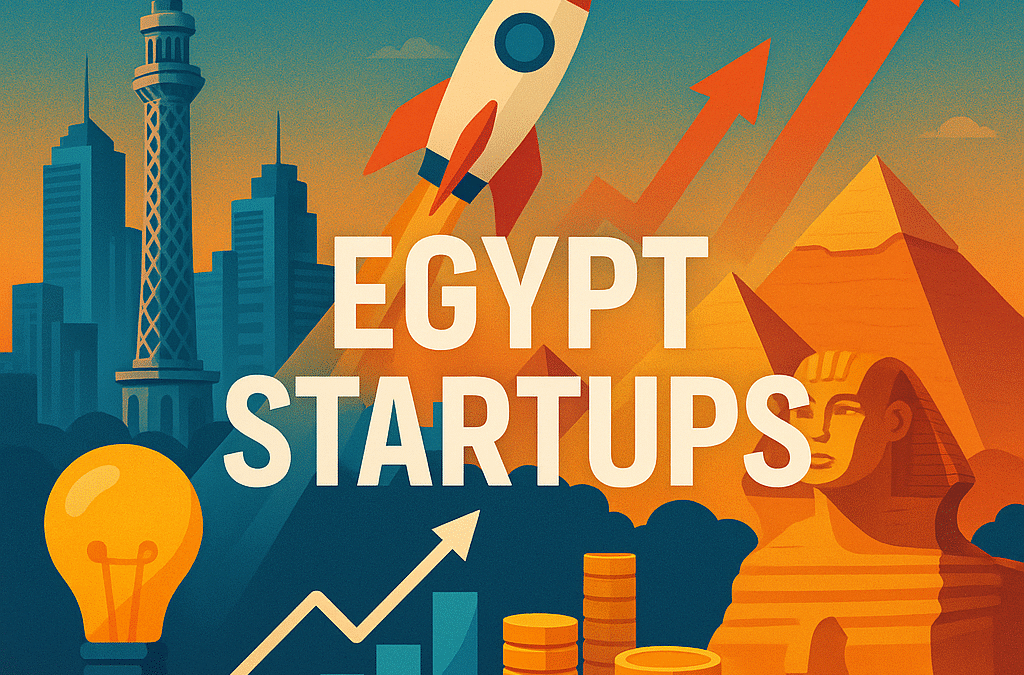A Fast‑Moving Playground
Walk down a street in Cairo and you will see riders in bright jackets, QR codes on shop doors, and teens paying with mobile wallets. These sights show how Egypt’s startup scene is growing. In 2024 the country grabbed almost 30 % of all startup deals in the MENA region. That means more money, new jobs, and fresh ideas. This article uses simple English to explain the top trends, hot sectors, and best chances for founders and investors.
1. Deal Flow Keeps Climbing
- Number of deals: 160+ disclosed deals in 2024, up from 90 in 2020.
- Total funding: $850 million in 2024, even after a slow global market.
- Ticket sizes: Seed rounds average $1 million; Series A hits $5–7 million.
Why the rise? Local venture capital funds (Algebra Ventures, Disruptech, Egypt Ventures) grew bigger. Gulf funds also joined rounds to gain early access to Egypt’s 110 million‑person market.
2. Three Sectors Lead the Pack
a. Fintech
- Pain: 60 % of adults lack bank accounts.
- Players: Fawry, Paymob, MoneyFellows.
- Edge: Central Bank sandbox lets startups test products with light rules.
- Keyword link: Many articles on startup trends show fintech as top draw for early stage capital.
b. Logistics and E‑commerce enablers
- Pain: Dense cities and weak addresses slow deliveries.
- Players: MaxAB, Trella, Khazenly.
- Edge: High smartphone use and job seekers who own bikes or trucks make scaling fast.
c. Edtech
- Pain: Crowded classrooms and exam pressure.
- Players: Orcas, Classera, Tyro.
- Edge: Parents spend 20 % of income on tutoring, so digital tools fit budgets and save travel time.
3. Government Moves That Help
- Fintech Sandbox: Cuts license wait from 18 months to 6 months.
- Startup Law Draft: Promises one‑stop online registration and tax breaks for five years.
- Sovereign Fund Co‑Invest: The Sovereign Fund of Egypt plans a $100 million co‑investment program with private VCs.
These steps lower risk for both founders and investment companies in Egypt.
4. Talent Pool and Cost Edge
- Graduates: 50 000 tech grads each year from local universities.
- Cost: A junior developer in Cairo earns 40 % less than one in Dubai.
- Remote work: Startups now hire from upper Egyptian cities via remote setups, widening the talent net.
5. Challenges to Watch
| Challenge | Impact | Simple Fix |
| Foreign currency limits | Hard to pay global cloud bills | Use local cloud credits or split payments through Dubai entity |
| Legal paperwork | Long contract cycles | Hire local counsel early; use standard term sheet templates |
| Mixed quality mentors | Bad advice slows growth | Join vetted programs like Flat6Labs or ITIDA tracks |
6. Opportunities Waiting for New Ideas
- Agri‑tech: Egypt imports $5 billion of food yearly. Smart irrigation and crop data can cut costs.
- Climate tech: Sun shines 3 000 hours per year. Solar panel startups can tap green loans.
- Health supply chains: Clinics need steady drug stock; software that tracks stock and predicts demand can win big.
7. Local Success Story: From Class Project to Series A
Four university friends built a prototype to connect small pharmacies to wholesalers. They raised $150 k seed in 2021. Using the money they onboarded 500 pharmacies and proved repeat orders. In 2023 they closed $6 million Series A from a venture capital Egypt fund and a Saudi logistics giant. Revenue now grows 15 % month over month. The keys: clear pain point, early traction, and a lean cost base.
8. Tips for Founders Entering Egypt’s Scene
- Start with a narrow niche. Solve one clear problem in one city before expanding.
- Collect data from day one. Investors trust charts, not words.
- Network weekly. Meet VCs, angels, and other founders at events like RiseUp Summit.
- Use local programs. ITIDA grants cover 50 % of UX costs; take the help.
9. Advice for young Readers
- Join coding clubs to build simple apps that fix school problems.
- Shadow a startup during winter break to learn real‑world tasks.
- Read local tech news daily; sites like Waya and Enterprise break down funding stories in plain language.
10. Why Investors Should Watch Egypt Now
- Large market meets low cost—rare mix.
- Strong English skills ease regional expansion.
- Government push aligns interests: more jobs, more tax later.
Conclusion: A Scene Ready for Action
Egypt’s startup landscape changed from small seeds to a busy forest of growing companies. Fintech, logistics, and edtech lead now, but new areas like climate tech and health supply chains are open fields. Support from VCs, the state, and young talent turns pain points into products quickly. For founders, this means a friendly launch pad; for investors, a chance to back the next big story in startup companies in Egypt. Keep your eyes on data, stay close to users, and you could ride the next wave of venture capital in Egypt.

